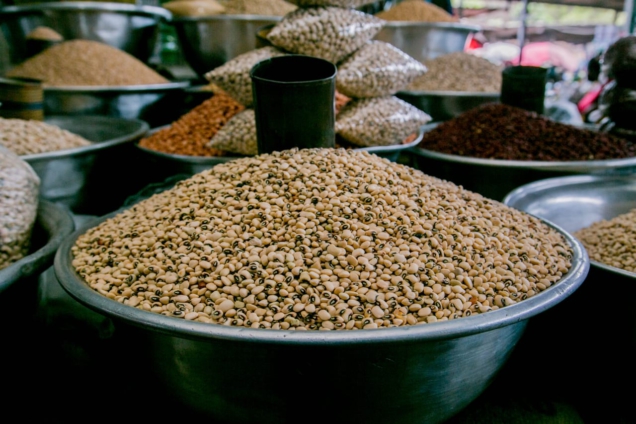As a farmer, I was recently excited to read a report that disclosed Ghana’s National Biosafety Authority (NBA) has approved 14 new biotechnology or genetically modified organism (GMO) crops for commercialisation. The approved crops consist of eight corn and six soybean events.
They include pest-resistant maize, glyphosate-tolerant maize, drought-tolerant maize, pest-resistant soybeans, glyphosate-resistant soybean, herbicide-resistant soybean, pest resistant soybean and soybeans with decreased fatty acid and increased oleic acid levels.
Some of the crops had a combination of two or more different traits. This adds to the approval given some years ago for pest-resistant cowpeas to the Savanna Agricultural Research Institute of the Council for Scientific and Industrial Research (CSIR).
As a farmer, I am excited that Bayer West–Central Africa and Syngenta South Africa which are both reputable agricultural biotechnology companies, are bringing these crops to Ghana. I foresee that these approvals will offer us direct benefits.
Pest-resistant crops reduce the need for chemical pesticides, which can be harmful to the environment, non-target species, and human health. This can lead to lower production costs for farmers and reduced environmental impact.
Glyphosate-tolerant crops allow farmers to use glyphosate-based herbicides to control weeds without harming the crop. This reduces the need for mechanical weed control methods, such as ploughing, which can lead to soil erosion and nutrient loss.
Herbicide-resistant crops allow farmers to effectively control weeds using specific herbicides without damaging the crop. This can lead to more efficient weed control, reduced labour costs, and less soil disturbance compared to mechanical weed control methods.
Drought-tolerant crops can withstand periods of low water availability, reducing crop losses during dry spells. This trait is precious in regions prone to drought or where water resources are limited like the north.
Crops with decreased levels of unhealthy fatty acids, such as saturated fats, can contribute to improved human health. For example, soybeans with reduced levels of saturated fats can lead to healthier cooking oils and food products. Oleic acid is a monounsaturated fatty acid that is considered beneficial for human health. Crops with increased oleic acid levels can provide consumers with healthier food options.
Furthermore, these crops can potentially reduce the environmental impact of agriculture. By being resistant to herbicides, farmers can adopt no-till farming practices, which help conserve soil moisture, reduce erosion, and minimise the release of greenhouse gases. Additionally, the decreased need for chemical pesticides can lead to a reduction in water pollution and harm to non-target species.
It is crucial to recognize the role of innovation in driving progress and addressing the challenges of our time. The approval of these GM crops is a testament to a country's willingness to embrace scientific advancements and prioritize the well-being of its citizens and the environment. The approval of genetically modified crops, with their impressive array of traits, represents a pivotal moment in agriculture. It signifies a commitment to addressing Ghana’s food security crisis. It is a step towards a more sustainable, efficient, and resilient food system. As we face the challenges of climate change, population growth, and food insecurity, embracing genetic innovation will be key to ensuring a brighter future for all.
The USDA report said Ghana continues to demonstrate its conviction that proven science-based advanced technologies remain viable options in the global efforts to achieve food security in the face of various production constraints like climate change. I agree with this assessment and I will want to encourage scientists in Ghana, and industry players to continue developing more such GM crops for the benefit of Ghanaian farmers.
Some time ago, I had the unique opportunity to attend a workshop on agricultural biotechnology during which the scientists told us about another technology besides GMOs called gene editing or genome editing. They said gene editing can be used to modify crops in more precise and easier ways than GMOs. We look forward to Ghana adopting gene editing crops as well in the future so we farmers can benefit even more from these agricultural biotechnology tools.
******
The author Muniru Osman is a farmer and founder of Muni Farms, a premier agricultural company in Ghana, and an agricultural innovations champion. With a deep-rooted commitment to sustainable farming practices, Muni Farms specialises in cultivating and delivering high-quality crops to feed Ghanaians and help make the country food secure. He can be reached via muniruosman99@gmail.com
Latest Stories
-
There are greener pastures in Ghana-Prof. Owusu-Dabo optimistic of country’s potential
1 hour -
Myjoyonline Interview with Abubakar Tahiru: Guinness World Record Holder for ‘Most Trees Hugged In An Hour’
1 hour -
JoyNews’ Clinton Yeboah honoured at 2023 Int’l Sports Media Awards in Spain
2 hours -
14 PWDs selected for maiden Africa Health Collaborative Medicine Counter Assistant training
3 hours -
Manchester United open to offers for nearly all of squad
3 hours -
Price of LPG per kilogramme constitutes 22% of taxes – LPG Marketers Association
5 hours -
Nigeria appoint Finidi George as new Super Eagles boss
5 hours -
Elevating Ghana’s creative industry: A blueprint for competing with Nigeria and South Africa
6 hours -
Poor finishing a problem for Asante Kotoko throughout the season – Prosper Ogum
7 hours -
Samini teams up with Francis Osei for ‘Sticks N Locks’ EP
7 hours -
Government should resource record labels – Seven Xavier
7 hours -
I need majority in parliament to successfully complete my term – Akufo-Addo pleads
7 hours -
Next NDC government will not recognise illegal contracts signed by current administration – Sammy Gyamfi
7 hours -
Premier League clubs vote in favour of spending cap plans
8 hours -
Nigeria’s fuel crisis brings businesses to a halt
8 hours

